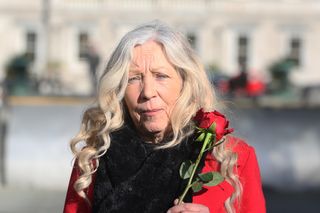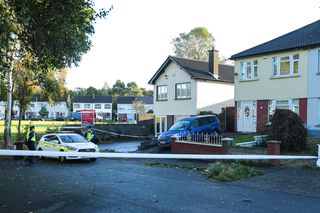St Anne's Park flats plan now faces three separate challenges
Apartments development on a site at St Anne’s Park has been the subject of protests
A third legal challenge has been brought in a bid to overturn planning permission for a development of 657 apartments on lands near St Anne's Park in Raheny.
At the High Court yesterday, Mr Justice Richard Humphreys granted leave to Oisín Collins SC, for environmentalist Peter Sweetman, to take the latest challenge over the permission granted by An Bord Pleanála in August.
The two other challenges are by a local residents' group, Clonres CLG, and John Conway, an environmentalist from Dundalk with the Louth Environment Group (LEG).
All three cases will be case managed in the court's Strategic Infrastructure Development (SID) list, which fast-tracks cases involving developments so designated.
Such designation allows dev- elopers to bypass the normal planning route to seek permission directly from the board.
The proposed apartments development, on former lands of St Paul's College, Sybil Hill Road, is by Crekav Trading GP Ltd, part of Pat Crean's Marlet group.
Quashing
The board had granted permission in 2018, but that too was challenged in three separate sets of proceedings by the same entities challenging the latest permission.
Last June, the board consented to an order quashing its 2018 permission on the basis it had not adequately addressed requirements of the Habitats Directive in relation to an Appropriate Assessment (AA) of the impact of the dev- elopment on feeding grounds of the light-bellied Brent goose and other protected bird species in Dublin Bay.
The board was asked to reconsider the matter "in accordance with law".
On August 20, it granted permission, subject to 30 conditions.
Mr Sweetman, of Rossport, Ballina, Co Mayo, claims the board's decision was made contrary to EU and national law.
The board, he claims, did not undertake an adequate AA as required by national law and the Habitats Directive and/or failed to comply with the Birds Directive.
Alternatively, he claims the State has failed to correctly transpose the requirements of both Directives.
Join the Irish Independent WhatsApp channel
Stay up to date with all the latest news














